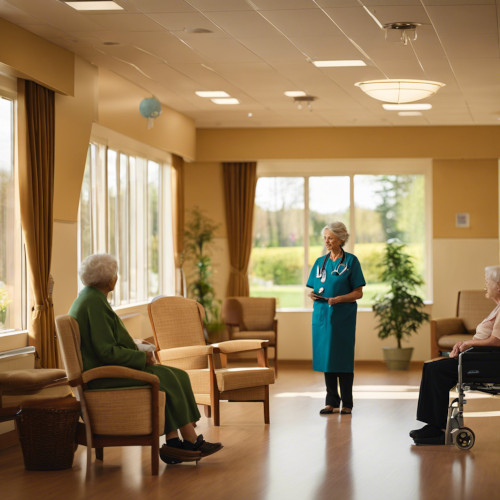
What Are the Most Common Deficiencies Found When Comparing Nursing Homes?
When choosing a nursing home for a loved one, it's essential to be aware of potential deficiencies that could impact the quality of care....
Posted by

Choosing the right nursing home for your loved one is a significant decision that involves more than just finding a place with a good reputation. Quality elder care depends on a range of services that cater to the individual needs of residents. Whether it's personalized medical care, engaging activities, or comprehensive support for daily living, understanding which services matter most can help families make informed choices. In this article, we'll explore the essential nursing home services that contribute to quality elder care, with practical tips on how to evaluate these services using online comparison tools.
Medical and nursing care is at the heart of any quality nursing home, as it directly affects the health and well-being of residents. When choosing a facility, it's essential to ensure that the nursing home can meet your loved one's specific medical needs.
Online comparison tools, such as the Medicare Nursing Home Compare website, can help families assess the quality of medical and nursing care by providing ratings and detailed information about the services each facility offers.
Activities of Daily Living (ADLs) include essential tasks such as bathing, dressing, eating, and mobility. For many residents, assistance with ADLs is a primary reason for entering a nursing home, so the quality of support in this area is critical.
When evaluating nursing homes, check the facility's ratings and reviews for feedback on the quality of ADL support. This information can often be found in the "Staffing" and "Health Inspections" sections of online comparison tools.
A well-rounded approach to elder care includes opportunities for social interaction and engagement in meaningful activities. These activities are essential for maintaining mental and emotional well-being and can significantly impact the quality of life for nursing home residents.
When comparing nursing homes, inquire about the activity programs they offer and check online reviews for resident feedback. Facilities that prioritize engagement often have a dedicated activities director and a calendar of events available for families to review.
Nutrition plays a crucial role in maintaining health and well-being, especially for elderly residents who may have specific dietary needs or restrictions. Quality nursing homes prioritize nutritious meals and positive dining experiences.
Using online comparison tools, families can often find information on a nursing home's approach to nutrition and dining, as well as feedback from current residents and their families.
Elder care is not just about physical health; emotional and psychological well-being are equally important. Quality nursing homes offer support services that address the emotional needs of their residents, helping them cope with the challenges of aging and the transition to a new living environment.
When evaluating nursing homes, ask about the emotional and psychological support services they offer. Online reviews and ratings can provide additional insights into how well these services are integrated into the care provided.
Choosing a nursing home involves more than just comparing costs or locations. The quality of elder care depends on a range of services that address medical, physical, emotional, and social needs. By understanding which services matter most and using online comparison tools to evaluate nursing homes, families can make informed decisions that ensure their loved ones receive the best possible care.

When choosing a nursing home for a loved one, it's essential to be aware of potential deficiencies that could impact the quality of care....
Posted by

By understanding the strengths and limitations of Medicare ratings and utilizing online comparison tools effectively, families can make...
Posted by

Choosing a nursing home for a loved one is a significant decision that requires careful consideration of whether the facility meets high...
Posted by